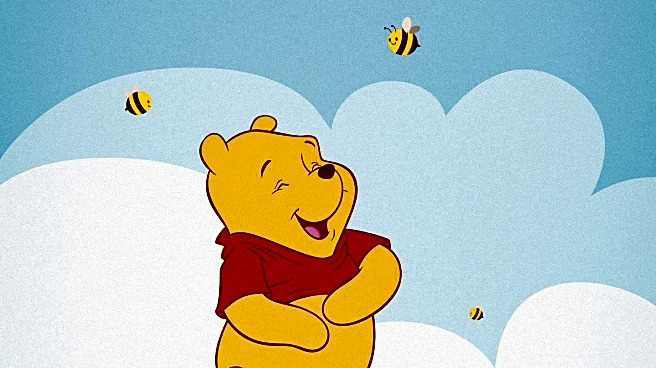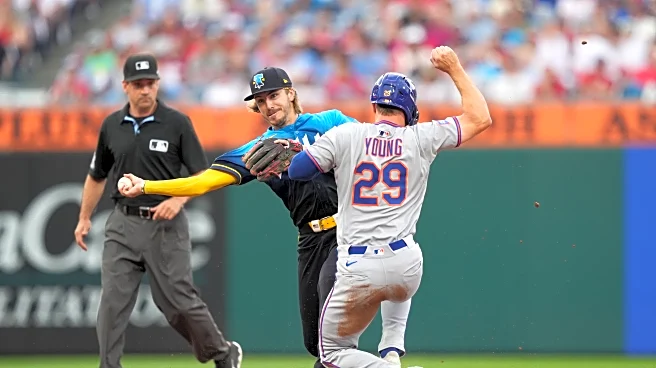What's Happening?
As Winnie-the-Pooh reaches its centenary, biographer Gyles Brandreth offers insights into the life of A.A. Milne, the creator of the beloved children's character. Brandreth, who has a personal connection
to the Milne family, explores Milne's multifaceted career as a playwright, novelist, and polemicist. Despite his success in various literary forms, Milne's legacy is predominantly defined by Winnie-the-Pooh, a fact that frustrated him. Brandreth highlights Milne's complex personality, noting his shyness and gregariousness, and his ability to observe and write about people with great insight. The enduring appeal of Winnie-the-Pooh is attributed to its enchanting setting and relatable characters, which resonate with both children and adults.
Why It's Important?
The centenary of Winnie-the-Pooh marks a significant milestone in literary history, celebrating a character that has become a cultural icon. The stories have transcended generations, offering a sense of nostalgia and comfort to readers worldwide. Milne's work, particularly through Winnie-the-Pooh, has had a profound impact on children's literature, influencing countless authors and illustrators. The celebration of this anniversary highlights the timeless nature of Milne's storytelling and the universal themes of friendship and adventure that continue to captivate audiences.
What's Next?
The centenary celebrations may lead to renewed interest in A.A. Milne's broader body of work, potentially sparking new adaptations and interpretations of his plays and novels. The anniversary could also inspire discussions on the evolution of children's literature and the role of classic stories in contemporary culture. As Winnie-the-Pooh continues to be a beloved character, future projects may explore innovative ways to engage new audiences while preserving the essence of Milne's original creations.
Beyond the Headlines
The enduring popularity of Winnie-the-Pooh raises questions about the commercialization of literary characters and the impact of media adaptations on original works. The role of Disney in popularizing Winnie-the-Pooh highlights the intersection of literature and entertainment, prompting discussions on the balance between artistic integrity and commercial success. Additionally, the stories offer a lens through which to examine childhood innocence and the societal values reflected in children's literature over the past century.










